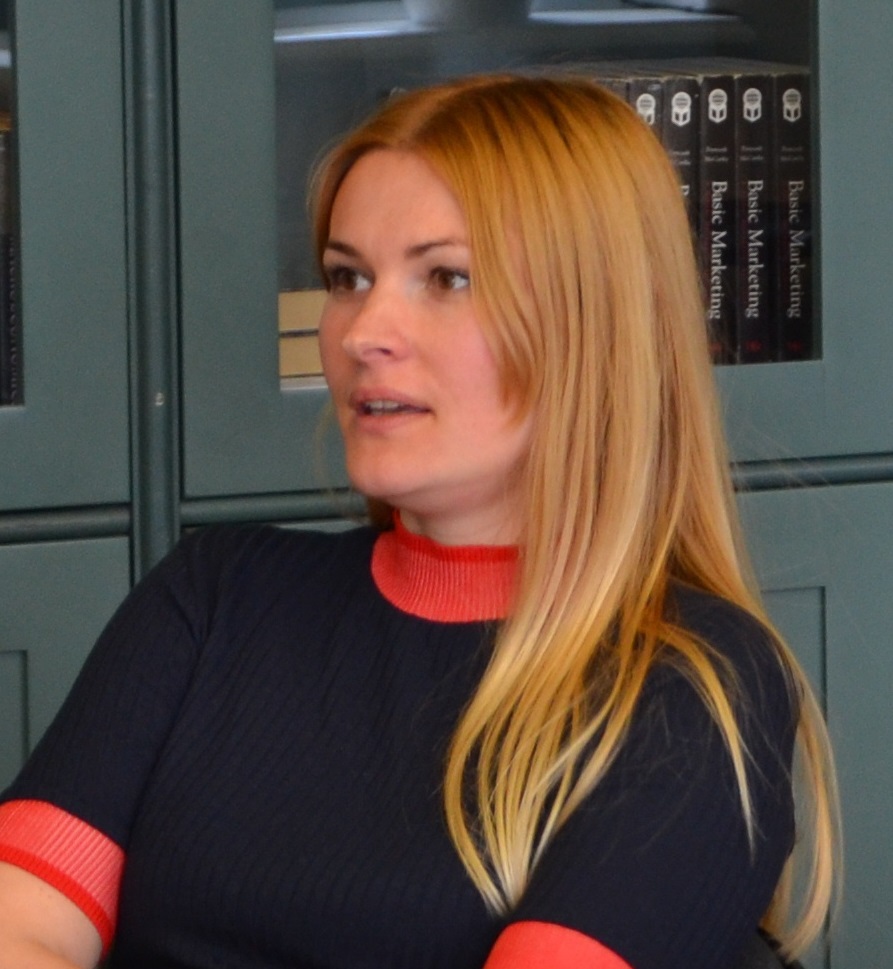WDI Program Helps Latvian Furniture Designer With Business
Monday, August 24, 2015
Aija Priede-Sietina is not the kind of businesswoman who fits into easy categories. The Latvian architect and mother of two is co-founder and general director of KUKUU, a small, family-owned company that crafts stylish baby furniture. Well schooled in designing and building things, Priede-Sietina, however, lacked formal business training.

“I had to learn this step-by-step,” she said. Running a company “was a big challenge…[but] you can never find out what you can do if you don’t really try.”
KUKUU was birthed from this can-do, adaptive spirit. As Aija and her designer husband Daneks Sietins raised their daughters, the couple saw a market for what she called “functionally designed, ecological, sustainable and matching furniture that is safe for children, and…actually nurtures a child’s personality.”
They launched KUKUU in 2011 and soon its bird&berry collection earned a Latvian Design Society Design Award, an A’Design Award (First Prize for the Best Manufactured Product), and international attention.
As a result of its newfound success, KUKUU faced the challenge of increased demand.
“I always had doubts about how large of stock to keep,” Aija said.
This led her to apply to the Supply Chain and Logistics Management program offered by WDI in partnership with the Stockholm School of Economics in Riga (SSE Riga). Aija attended free of charge as a WDI Teeter Scholar, named in memory of Robert M. Teeter, an advisor to U.S. presidents from 1968-1992 and a WDI board member. Through the scholarship program, WDI awards 20 full-tuition scholarships annually to managers from small & medium-sized enterprises and NGOs in emerging markets to attend WDI Professional Education programs.
During the supply chain program, which took place at SSE Riga in late April, Aija and six other participants learned to see their organizations’ operations in a new way. They gained new tools for ensuring their organizations are lean, efficient, and ready to compete in today’s increasingly complex and globalized economy.
Aija gave high marks to the program’s practical casework and intimate size.
“We all had the opportunity to ask questions and to work with our business models and to have some opinions from other participants,” she said. “Now I have some formulas to use and am testing how it works.”
Course instructor Damian Beil, a WDI faculty affiliate, said that the program has plenty to offer even small companies like KUKUU.
“All businesses with a supply chain must manage inventory, capacity, and customer responsiveness to weather against uncertainty,” said Beil, who also is an associate professor at U-M’s Ross School of Business. “These challenges are fundamentally the same whether the business is small or large. Participants in the program get a lot of value from seeing this, and from hearing about others’ experiences at different firms.
“For a small firm, this can lead to great ideas about how to better work with large suppliers and customers.”
Aija said managers from companies big and small could benefit from the program. The skill sets offered in these training programs help companies like KUKUU face new challenges and reach new heights. KUKUU is now sold in 16 countries.
Aija said her experience as a start-up company “encourages people to do something, because we didn’t have this background in producing our products and selling around the world.”
“We took the risks,” she said. “We are moving forward. We see potential, and that keeps us going.”
Since 1992, WDI Executive Education has trained more than 15,000 managers from over 8,000 organizations in Central & Eastern Europe, Southeastern Europe, Russia, Latin America, Morocco, Rwanda, China and Vietnam. WDI’s partner institution SSE Riga is the top business school in Latvia and contributes to the economic and social development of the Baltic region.
